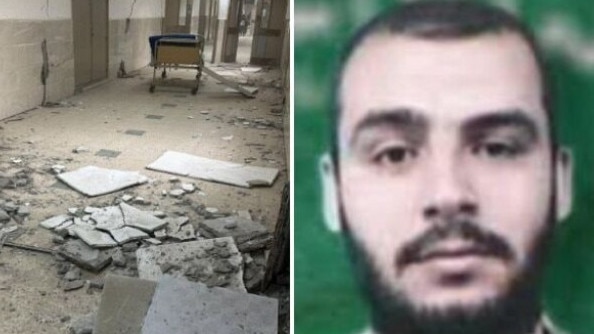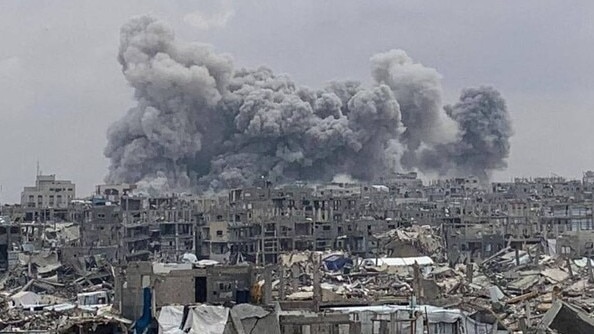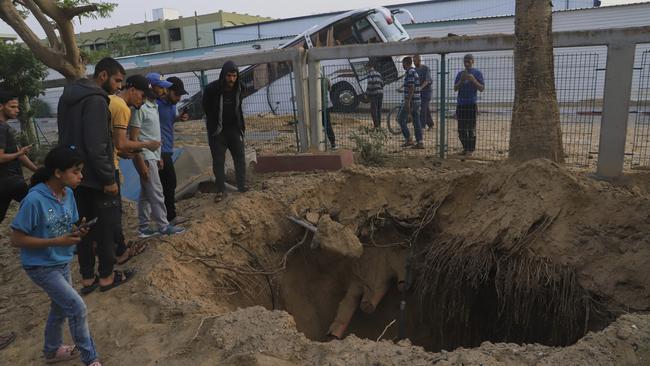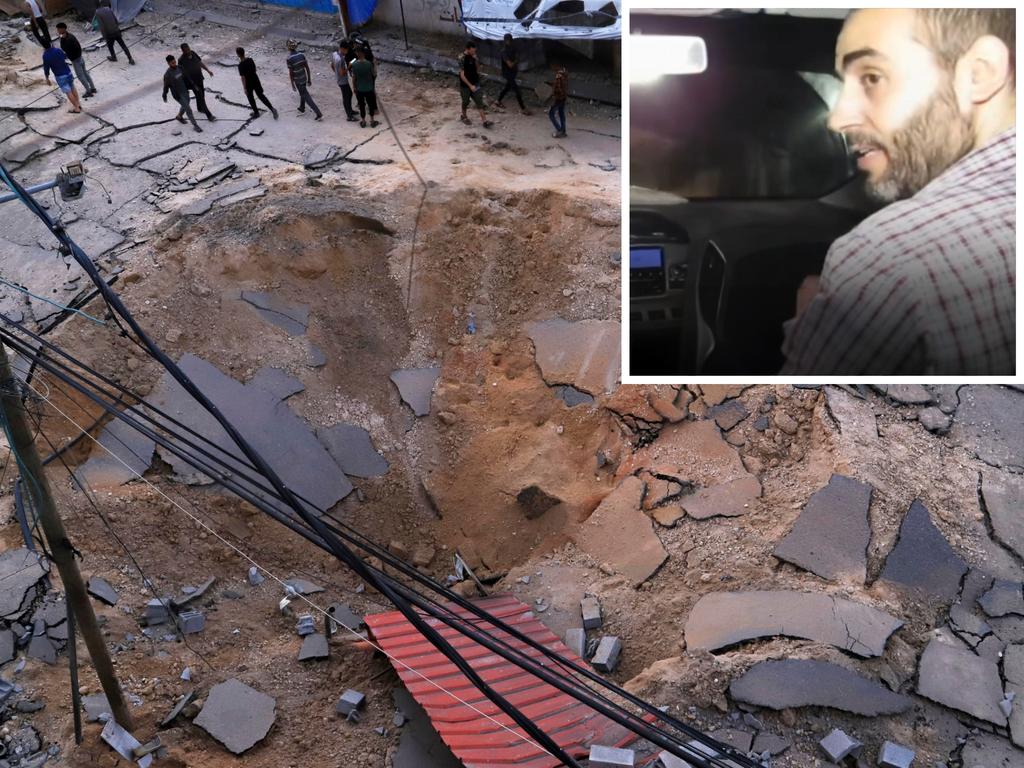Hamas confirms Mohammed Sinwar used tunnels located at site of Israeli strikes
Hamas says the Gaza tunnel network hit by massive Israeli air strikes this week has been used by their leader Mohammed Sinwar and other commanders to avoid IDF attacks.

Hamas has reportedly confirmed that the Gaza tunnel network hit by massive Israeli air strikes this week are used by the terror group’s leader Mohammed Sinwar and other commanders to avoid Israeli Defence Force attacks.
On Wednesday (AEST) the Israeli Air Force dropped more than a tonne of bunker busting bombs on the emergency yard and rear compound of the hospital, which it said were targeting an underground command and control facility of the terror group where Sinwar was thought to be hiding.
Strikes that continued on Thursday in a “belt of fire” at the Khan Younis site extended up to 500 metres in some areas, with Israeli media reporting the aim of the renewed attack was to prevent any attempt at the rescue of Sinwar and other militant commanders, or removal of the rubble
The Israeli military has been widely criticised after publishing a video incorrectly claiming to show Hamas-built tunnels underneath the European Hospital in southern Gaza.
The Israeli Defence Forces admitted that the tunnels in the video were under a school around 250 yards from the hospital.
However amid increasing concern over the accuracy of the strikes, which have killed scores of people, Hamas sources in Gaza told the Saudi based newspaper Asharq Al-Awsat that the targeted site did contain a tunnel system previously damaged in the seven week long 2014 war with Israel The sources claimed the network had been restored and was used by Hamas leadership to hide from Israeli attacks and plan their own attacks.

Israel’s Channel 12 TV reports that the tunnel includes oxygen tubes designed to allow survival in the event of a collapse or attack.
In 2021 Sinwar was in such a tunnel alongside Rafaa Salama, the former commander of Hamas’ Khan Younis Brigade, when it was struck by the IDF, Asharq Al-Awsat reports. Both men survived the attack with minor injuries.
Salama was later killed in an Israeli strike with Mohammed Deif, Hamas’ elusive military chief, in 2024.
Sinwar, who took over Hamas in Gaza after the death of his brother Yahya Sinwar last year, has been targeted for years by the Israeli Defence Forces but has consistently managed to avoid assassination.

Among his most audacious escapes, according to Asharq al-Awsat, was using pre-recorded radio transmissions to give the impression he was speaking live from a certain location, leading the IDF to bomb that site while Sinwar was actually elsewhere.
In 2003 he also escaped unscathed after an explosive device planted in the wall of his home blew up. In 2019, an Israeli operation that reportedly involved poisoning Sinwar and other commanders and abducting them from a beach also failed.
Asharq al-Awsat reports that Sinwar founded Hamas’s secretive “Shadow Unit,” which is tasked with guarding high-value captives, such as Israeli soldier Gilad Shalit whose 2006 abduction Sinwar oversaw.
Neither Israel nor Hamas has confirmed Sinwar’s death, with Asharq al-Awsat reporting that multiple Hamas sources have refused to confirm or deny his assassination.
Israel’s military is following its pattern of refusing even to confirm publicly that the Khan Younis strikes were targeting Sinwar, is reportedly cautiously optimistic the strikes have killed both the Hamas leader and senior commander Muhammad Shabana, who was first in line to succeed him.
Abu Obeidah, Hamas’s spokesman – regularly seen on Al Jazeera with his face covered by a red keffiyeh – is also thought to have been killed.
Prime Minister Benjamin Netanyahu has vowed to push ahead with a promised escalation of force in Gaza to pursue his aim of destroying. In comments released by Mr Netanyahu’s office this week, the Prime Minister said Israeli forces were days away from entering Gaza “with great strength to complete the mission … It means destroying Hamas.”
Senior Hamas official Bassem Naim told Sky TV the group was holding direct talks with the US, despite denials by Washington.
“We believe that President Trump is doing the hard work of reducing tensions in the region, which is what motivates us to continue communicating with the American administration, regardless of the team,” Mr Naim said.
He also claimed that Hamas told negotiators the group was ready to return all the hostages immediately if they were promised the releases would lead to an end to the war and the entry of aid into Gaza.
Jerusalem has denied there are any movements forward on peace talks.




To join the conversation, please log in. Don't have an account? Register
Join the conversation, you are commenting as Logout